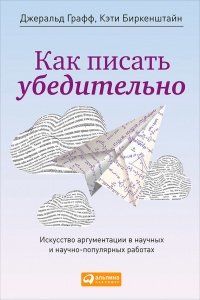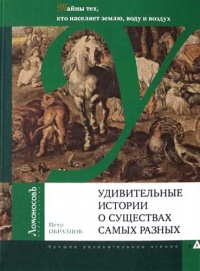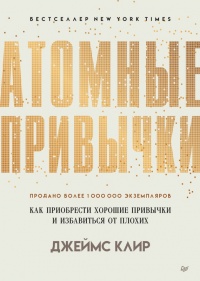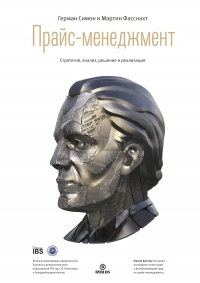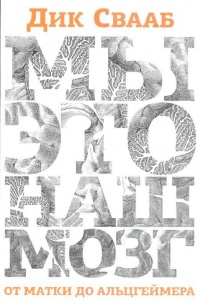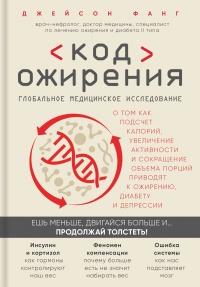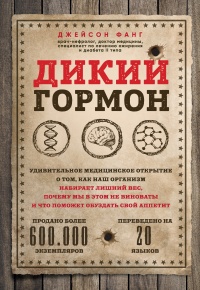Читать книгу "Как микробы управляют нами. Тайные властители жизни на Земле - Эд Йонг"
Шрифт:
Интервал:
Закладка:
Weeks, P. (2000) ‘Red-billed oxpeckers: vampires or tickbirds?’, Behav. Ecol. 11, 154–160.
Wells, H.G., Huxley, J., Wells, G.P. (1930) The Science of Life (London: Cassell).
Wernegreen, J.J. (2004) ‘Endosymbiosis: lessons in conflict resolution’, PLoS Biol. 2, e68.
Wernegreen, J.J. (2012) ‘Mutualism meltdown in insects: bacteria constrain thermal adaptation’, Curr. Opin. Microbiol. 15, 255–262.
Wernegreen, J.J., Kauppinen, S.N., Brady, S.G., Ward, P.S. (2009) ‘One nutritional symbiosis begat another: phylogenetic evidence that the ant tribe Camponotini acquired Blochmannia by tending sap-feeding insects’, BMC Evol. Biol. 9, 292.
Werren, J.H., Baldo, L., Clark, M.E. (2008) ‘Wolbachia: master manipulators of invertebrate biology’, Nat. Rev. Microbiol. 6, 741–751.
West, S.A., Fisher, R.M., Gardner, A., Kiers, E.T. (2015) ‘Major evolutionary transitions in individuality’, Proc. Natl. Acad. Sci. 112, 10112–10119.
Westwood, J., Burnett, M., Spratt, D., et al. (2014). The Hospital Microbiome Project: meeting report for the UK science and innovation network UK – USA workshop ‘Beating the superbugs: hospital microbiome studies for tackling antimicrobial resistance’, 14 October 2013. Stand. Genomic Sci. 9, 12.
The Wilde Lecture (1901) ‘The Wilde Medal and Lecture of the Manchester Literary and Philosophical Society’, Br. Med. J. 1, 1027–1028.
Willingham, E. (2012) ‘Autism, immunity, inflammation, and the New York Times’.
Wilson, A.C.C., Ashton, P.D., Calevro, F., et al. (2010) ‘Genomic insight into the amino acid relations of the pea aphid, Acyrthosiphon pisum, with its symbiotic bacterium Buchnera aphidicola’, Insect Mol. Biol. 19 Suppl. 2, 249–258.
Wlodarska, M., Kostic, A.D., Xavier, R.J. (2015) ‘An integrative view of microbiome-host interactions in inflammatory bowel diseases’, Cell Host Microbe 17, 577–591.
Woese, C.R., Fox, G.E. (1977) ‘Phylogenetic structure of the prokaryotic domain: the primary kingdoms’, Proc. Natl. Acad. Sci. 74, 5088–5090.
Woodhams, D.C., Vredenburg, V.T., Simon, M-A., et al. (2007) ‘Symbiotic bacteria contribute to innate immune defenses of the threatened mountain yellow-legged frog, Rana muscosa’, Biol. Conserv. 138, 390–398.
Woodhams, D.C., Brandt, H., Baumgartner, S., et al. (2014) ‘Interacting symbionts and immunity in the amphibian skin mucosome predict disease risk and probiotic effectiveness’, PLoS ONE 9, e96375.
Woznica, A., Gerdt, J.P., Hulett, R., et al. (2017) ‘Mating in the closest living relatives of animals is induced by a bacterial chondroitinase’, Cell 170, 1175–1183.e11.
Wu, H., Tremaroli, V., Bäckhed, F. (2015) ‘Linking microbiota to human diseases: a systems biology perspective’, Trends Endocrinol. Metab. 26, 758–770.
Wybouw, N., Dermauw, W., Tirry, L., et al. (2014) ‘A gene horizontally transferred from bacteria protects arthropods from host plant cyanide poisoning’, eLife 3.
Yatsunenko, T., Rey, F.E., Manary, M.J., et al. (2012) ‘Human gut microbiome viewed across age and geography’, Nature 486 (7402), 222–227.
Yong, E. (2014a) ‘The Unique Merger That Made You (and Ewe, and Yew) ’, Nautilus.
Yong, E. (2014b) ‘Zombie roaches and other parasite tales’, TED.
Yong, E. (2014c) ‘There is no ‘healthy’ microbiome’, New York Times.
Yong, E. (2015a) ‘A visit to Amsterdam’s Microbe Museum’, New Yorker.
Yong, E. (2015b) ‘Microbiology: here’s looking at you, squid’, Nature 517, 262–264.
Yong, E. (2015c) ‘Bugs on patrol’, New Sci. 226, 40–43.
Yoshida, N., Oeda, K., Watanabe, E., Mikami, T., et al. (2001) ‘Protein function: chaperonin turned insect toxin’, Nature 411, 44–44.
Youngster, I., Russell, G.H., Pindar, C., et al. (2014) ‘Oral, capsulized, frozen fecal microbiota transplantation for relapsing Clostridium difficile infection’, JAMA 312, 1772.
Zhang, F., Luo, W., Shi, Y., et al. (2012) ‘Should we standardize the 1,700-year-old fecal microbiota transplantation?’, Am. J. Gastroenterol. 107, 1755–1755.
Zhang, Q., Raoof, M., Chen, Y., et al. (2010) ‘Circulating mitochondrial DAMPs cause inflammatory responses to injury’, Nature 464, 104–107.
Zhao, L. (2013) ‘The gut microbiota and obesity: from correlation to causality’, Nat. Rev. Microbiol. 11, 639–647.
Zilber-Rosenberg, I., Rosenberg, E. (2008) ‘Role of microorganisms in the evolution of animals and plants: the hologenome theory of evolution’, FEMS Microbiol. Rev. 32, 723–735.
Zimmer, C. (2008) Microcosm: E-coli and The New Science of Life (London: William Heinemann).
Zug, R., Hammerstein, P. (2012) ‘Still a host of hosts for Wolbachia: analysis of recent data suggests that 40 % of terrestrial arthropod species are infected’, PLoS ONE 7, e38544.
Внимание!
Сайт сохраняет куки вашего браузера. Вы сможете в любой момент сделать закладку и продолжить прочтение книги «Как микробы управляют нами. Тайные властители жизни на Земле - Эд Йонг», после закрытия браузера.


